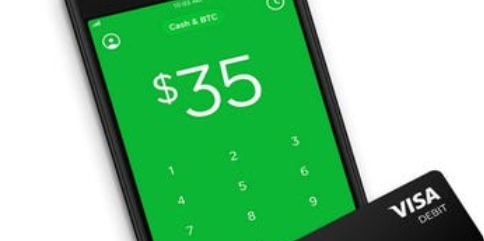Original Name: Cash App was originally known as “Square Cash” before it was rebranded.
Cash App users might soon receive compensation from a recent settlement. The mobile payment service has been ordered to pay $15 million in damages following a class-action lawsuit. According to USA TODAY, the lawsuit accused Cash App Investing and Block Inc. of failing to adequately secure and protect consumer information.
Cash App & Block Inc. have agreed to pay $15 million in a class-action settlement after a 2021 data breach exposed 8.2 million users. The lawsuit claimed that the company failed to secure customer data, allowing a former employee to download sensitive info.
Thoughts? pic.twitter.com/OPlWvE9uDX
— Earn Your Leisure (@EarnYourLeisure) August 10, 2024
The lawsuit focused on a data breach in December 2021, which led to the unauthorized release of personally identifiable information for 8.2 million current and former Cash App Investing customers. Additionally, it was found that a former employee accessed and downloaded users’ personal information without their knowledge.
Users who experienced unauthorized or fraudulent transactions from August 23, 2018, to August 20, 2024, may be eligible to file a claim for up to $2,500. Those who had an account during this period and have not already been reimbursed by Block Inc., Cash App Investing, or any third party can submit claims. Eligible users can claim up to $2,500 for out-of-pocket losses, and may also be reimbursed for up to three hours of lost time at a rate of $25 per hour. Claims can also be submitted for monetary losses if they have not been previously reimbursed.
If users have multiple Cash App accounts, they should submit only one claim form but list all their Cash Tags and relevant details on that form. Claims must be submitted by November 18, 2024, to be considered.
Cash App users could get up to $2,500 in data breach lawsuit settlement. How to file a claim in Tennessee https://t.co/zWupKkZYo1
— Daily News Journal (@dnj_com) August 10, 2024
The settlement marks a significant financial impact for Cash App and highlights ongoing efforts to address cybersecurity issues within digital payment platforms.
Some Facts on Cash App
- Founded: Cash App was launched in October 2013 by Square, Inc., a financial services and mobile payment company co-founded by Jack Dorsey (also known for co-founding Twitter).
- Headquarters: The company is headquartered in San Francisco, California.
- Primary Services: Cash App allows users to send and receive money, invest in stocks and Bitcoin, and utilize a debit card known as the Cash Card. The app has expanded its services over time, becoming a versatile financial tool.
- User Base: As of 2023, Cash App has over 51 million monthly active users, making it one of the most popular mobile payment services in the United States.
- Revenue: Cash App has become a significant revenue driver for Block, Inc. (formerly Square, Inc.), particularly through its Bitcoin trading feature, which has seen substantial growth.
- Cash Card: The Cash Card is a customizable Visa debit card linked directly to a user’s Cash App balance. It can be used for both online and in-person purchases.
- Bitcoin Trading: Cash App was one of the early adopters of Bitcoin trading within a mobile payment app, allowing users to buy, sell, and transfer Bitcoin easily.
- Direct Deposit: Cash App allows users to set up direct deposit for their paychecks, providing banking-like services without the need for a traditional bank account.
- Customer Base: Cash App primarily serves customers in the United States and the United Kingdom, although its features and services are more expansive in the U.S.
Key Points:
i. Cash App has agreed to pay $15 million due to a data breach lawsuit.
ii. The breach in December 2021 exposed personal data of 8.2 million users.
iii. Affected users can file claims for up to $2,500 for out-of-pocket losses, time lost, and transaction losses.
iv. Users with multiple accounts should list all details on a single claim form.
v. Claims must be submitted by November 18, 2024.
Susan Guglielmo – Reprinted with permission of Whatfinger News



